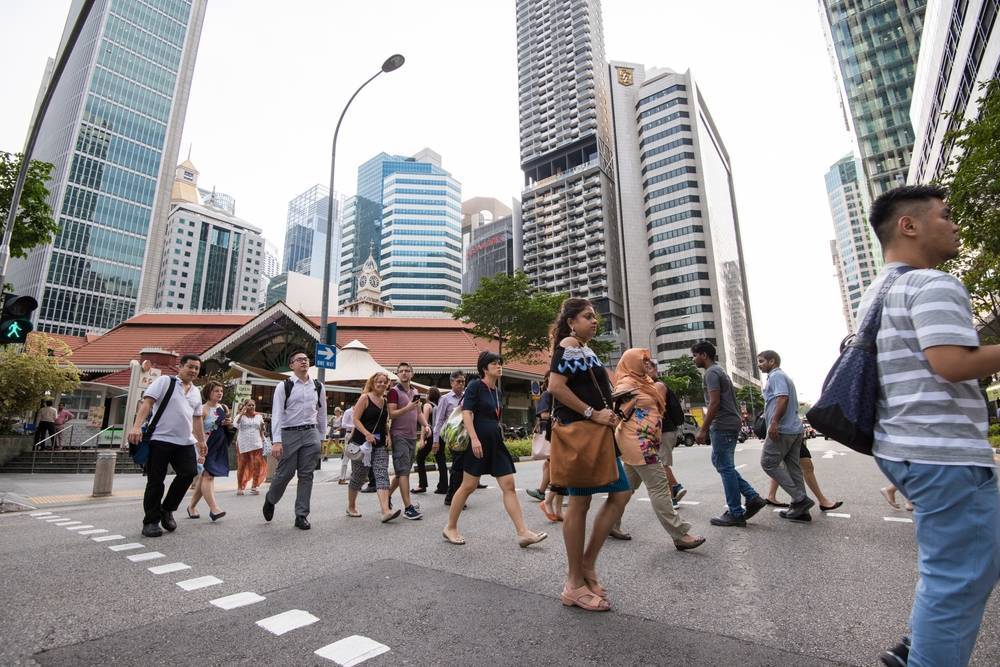Singapore grapples with a fresh wave of COVID-19 infections, with Health Minister Ong Ye Kung anticipating higher hospitalisation rates in the forthcoming weeks.
This case surge has seen numbers rise from 1,000 to 2,000 daily in just three weeks. Yet, despite this concerning trend, Singapore’s government has yet to make any immediate plans for additional social constraints.
Dominant Variants: The Current Culprits
Two specific variants, the EG.5 and its sub-lineage HK.3, descendants of the XBB Omicron variant, are behind most recent infections. These variants represent over 75% of daily cases, a significant concentration highlighting the need for continued vigilance.
Past Peaks and Comparisons
Back in April, during a previous spike, Singapore faced a daunting 4,000 cases per day. The government leans towards treating the virus as an “endemic disease”. Mr. Ong emphasises, “We will live with it”, stressing the absence of evidence suggesting the new variants cause more severe illness. However, he forewarns, “Hospitalisations will increase as more may fall sick in coming weeks.”
ase, Ong also emphasised the necessity for the populace to remain cautious. The message remains clear: complacency could result in rising hospital waiting times and more severe cases.
The Power of Vaccination: Hard Data Reveals Its Impact
During his address, Mr Ong stressed the continuous importance of vaccinations. Seniors and those with pre-existing conditions are especially urged to ensure their vaccinations are current.
Backing this advice, a Ministry of Health study provided valuable insights:
- Individuals considered “best protected” (with three mRNA shots and a prior natural infection within the last year) had a severe illness rate of about 10 per 100,000 people.
- Contrastingly, the “least protected” group (no vaccination or previous infection) are five times more susceptible to severe illness, with a rate exceeding 50 per 100,000.
- Protection starts to diminish after about 12 months, even for those who were previously “well-protected”.
Therefore, Ong’s advice? Stay updated with vaccinations. Regular jabs not only ensure mild symptoms if infected but also bolster resistance against potential future infections.
Critical Advice for the Vulnerable
Vulnerable demographics, including seniors, are particularly urged to keep vaccinations current. This not only ensures milder symptoms upon infection but also fortifies against severe repercussions during any subsequent infection. “Protection wanes, but a new jab rejuvenates it,” asserts the Health Minister. He concludes with a stern reminder: “An infection without updated vaccination could be as worrisome as when the pandemic began.”
By The Numbers: Singapore’s COVID Struggle
Since the pandemic’s inception till October 4, 2023, Singapore has registered 2,594,809 confirmed cases, according to the World Health Organisation (WHO) data. Unfortunately, the nation’s death toll stands at 1,872.
In related news, The Health Sciences Authority (HSA) in Singapore recently approved Moderna’s application to change its monovalent vaccine status from the Pandemic Special Access Route (PSAR) to full registration. Previously, HSA only authorised the monovalent vaccine under its PSAR for children and adults six months old and above. With this latest decision, HSA has now fully registered the monovalent version of Spikevax, the original Moderna COVID-19 vaccine Singapore used.
Conclusion: Stay Guarded and Informed
Despite the challenging numbers, Singapore’s message is consistent: the best defence against COVID-19 remains updated vaccination and individual vigilance. As the situation evolves, remaining informed and proactive will be the keys to navigating this ongoing health challenge.

